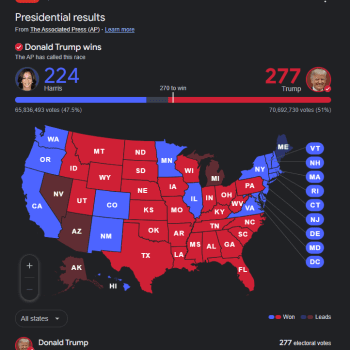I agree with Ross MacKenzie – it was indeed really striking to hear Adam and Eve invoked in this explanation of the history of the European Union’s Common Economic Market and of the rationale for how it approaches competition.
But even more noteworthy is the comparison Margrethe Vestager makes between a regulated free market and the democratic political process. We pay so much attention to the competition between candidates, the advertising through which they sell their product to us in the marketplace of political ideas, that we can be oblivious to the framework within which this competition takes place.
The democratic process is constrained and safeguarded by regulations which specify the process, the procedure, the implications of success or failure to win, what constitutes victory, and what limits are placed on the creation of absolute political monopolies. What precise constitution and laws play this role varies from society to society. But none, to my knowledge, functions as a democracy without there being laws that stipulate this is how things work.
I think it is worthwhile pointing this out, because the illusion that our politics represents an extreme “capitalist” approach, a wholly unregulated marketplace, feeds into the similar illusion that the economic marketplace is or should be unconstrained by rules that impose limits on greed and seek to protect the common good.
Of related interest, see the article in Commonweal about “Haters in the Marketplace of Ideas.” Here’s a brief snippet:
One key problem with the “marketplace of ideas” model, then, is that niche markets specializing in hateful ideas can and do flourish online. And in the egalitarian architecture of the web, the hate they purvey is not relegated to some hard-to-reach location, but is readily available to anyone, just a mouse-click or finger-swipe away. A thornier problem with the marketplace metaphor is this: What if the process by which hateful views are aired and inspected is not a salutary sorting-out of ideas in the civic square, but a pollution of that square?
Click through to read more. The metaphor is apt and ties in well with the theme of this post. At what point do we need to impose rules and quality requirements on the marketplace of ideas much as we do on the marketplace of foods, recognizing that otherwise we will be allowing people to sell poison that leads to the deaths of others?













